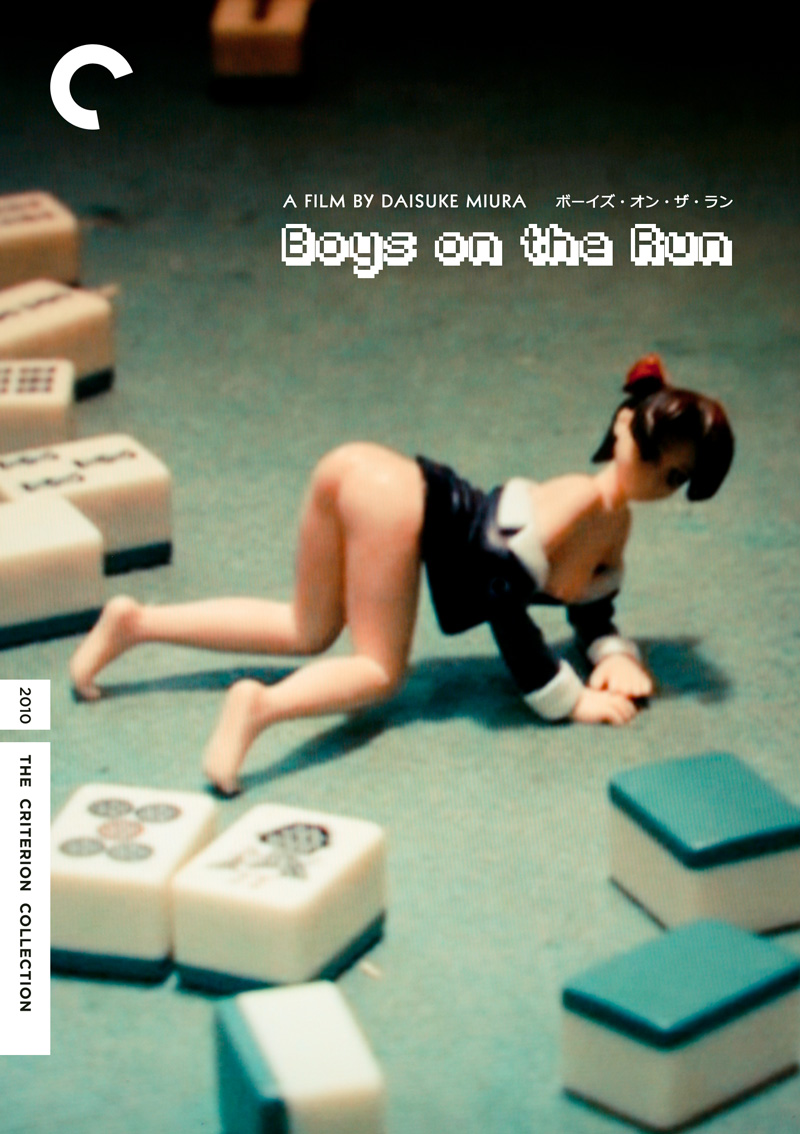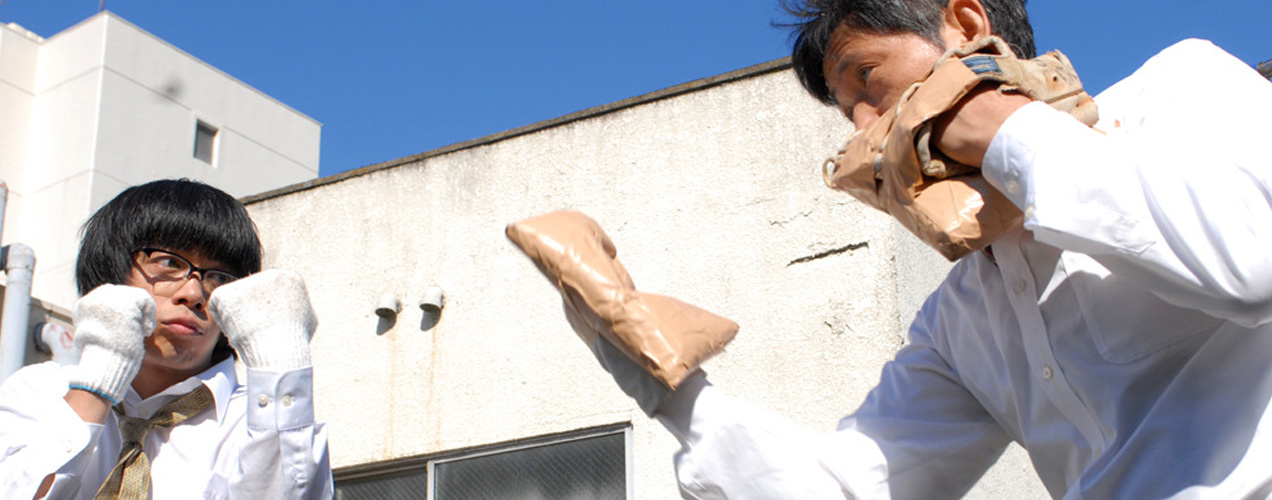
#10: Boys on the Run by Daisuke Miura. In the ten days leading up to the 83rd Annual Academy Awards, I listed my ten favorite films of 2010, each accompanied by a custom Criterion Collection cover inspired by Sam Smith’s Top 10 of 2010 Poster Project.
 2010 / Daisuke Miura > The paradox of the Twitter generation is its ability to be virtually social while being a physical recluse. This is life as we’ve come to accept it, but sadly clicking the “Like” button and posting on a girl’s Facebook wall doesn’t actually equate to understanding someone. And Japan, with its social hierarchy only moderately stretched by a few ostentatious rebels, excels in the most amusing of social phenomena—such as a telekura (short for “telephone club”) where men set up “dates” with women who usually have more to offer. With such conveniences, it’s no wonder that a telekura is where we find our lead character Tanishi, a virgin, on his 29th birthday.
2010 / Daisuke Miura > The paradox of the Twitter generation is its ability to be virtually social while being a physical recluse. This is life as we’ve come to accept it, but sadly clicking the “Like” button and posting on a girl’s Facebook wall doesn’t actually equate to understanding someone. And Japan, with its social hierarchy only moderately stretched by a few ostentatious rebels, excels in the most amusing of social phenomena—such as a telekura (short for “telephone club”) where men set up “dates” with women who usually have more to offer. With such conveniences, it’s no wonder that a telekura is where we find our lead character Tanishi, a virgin, on his 29th birthday.
Based on a manga by Kengo Hanazawa, Boys on the Run is effectively a delayed coming of age story. Mislabeled as a sex comedy, its laughs are more out of pity than joy. But it works wonderfully because there’s a bit of us in all of Tanishi’s misdirected actions. The way in which we see him mature is believable; it’s more reminiscent of Rocky than The Mighty Ducks. Played straight by Kazunobu Mineta, who in real life is a punk rocker with a penchant for getting naked during shows, Tanishi’s hope for sexual satisfaction provide the crux of the story. A lot can go wrong with such a simple goal, but unlike campy sex comedies, the finalities here are less conventional. It’s not about shock or warmth, but the reality of aging. In some ways, the film is for everyone who’s missing a piece of themselves, and it yells to the viewer that it’s never too late to fight, even if you’re going to lose, to make yourself feel whole again.

